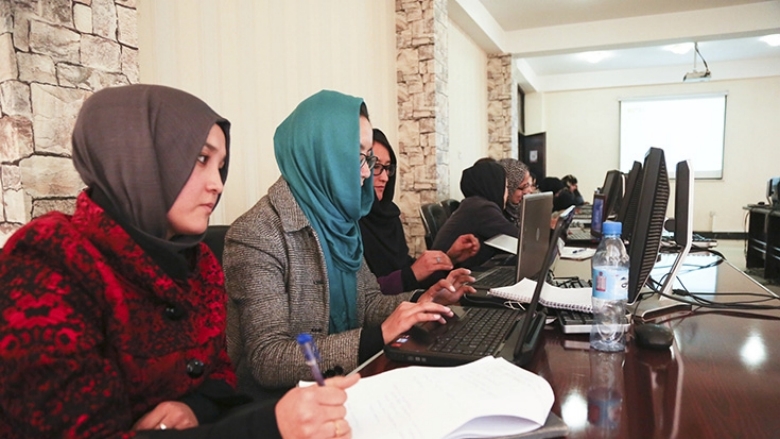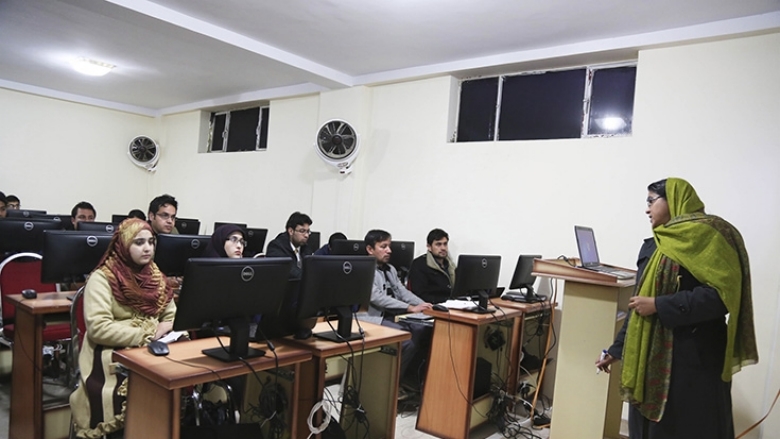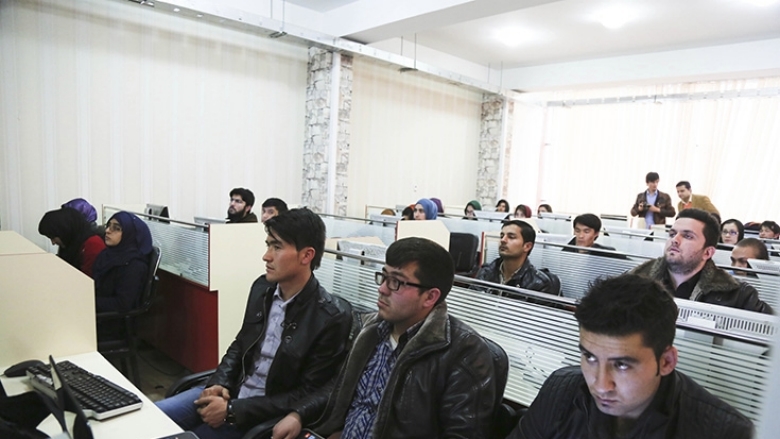System management, networking and data safety, Microsoft technologies, database management, web design/development, and software development are among the subjects that are taught in the curriculum.
Mohammad Rafi Bayez, one of the teachers in the program, says these training courses started recently and the second round is nearly complete. “The graduates of the first round, which was a four-month certification program, were able to seize some remarkable opportunities with big companies. This outcome alone suffices to tag this project a success,” says Rafi.
ECITSA is a sub-component of the Ministry of Communications and Information Technology’s Information and Communication Technologies (ICT) Sector Development Project, supported by the World Bank with a $50 million grant since April 2011. The project builds on the success of earlier initiatives, and activates and catalyzes the next phase of ICT development in the country, focusing on new opportunities such as Internet development and seeking to ride the global smart phone revolution. It helps broaden the use of mobile applications to improve public service delivery and program management in the government.
The ICT Sector Development Project also includes building capacity of government officials as a key objective. Officials and civil servants from across the government have been trained on a range of topics including mobile governance, development of regulatory frameworks in the Internet age, and improving the enabling environment for IT industry development. Over 150 government officials at various levels have benefited from this training.
Enthusiasm for technology
Ramazan, 23, another student at Rana Educational Institute, echoes Fatima’s opinion about the usefulness of the IT course. He graduated with a bachelor’s degree from the Computer Science faculty of the Polytechnical University of Kabul, but feels that he learnt more through this course to help him find a job. “I have learnt a lot here,” he says, “I am grateful to the government of Afghanistan for sponsoring such programs.”
According to Sameer Ahmad Ahadi, Technical Coordinator of the ICT Project, “We are aiming to educate a total of 1,500 technicians,” he says. The third and final round of the program is in the process of being implemented. “The purpose of this specialized training in IT is to help companies source skilled IT technicians while increasing the employment prospects of the participants,” says Sameer.
In the recent years, training Afghans in communication and information technology has been a top priority of the Afghan government and its international partners. So far a total of 1,500 individuals have been trained by the ICT Sector Development Project initiative, both locally and abroad. The ICT Sector Development Project’s goal is to further facilitate Internet and telephone services, and to support effective investment in this sector.
The students at Rana Educational Institute are not alone in their efforts to master the specialized IT training. They are joined by many other young people from around the country, who also aspire to play their role by learning technology as their country progresses on its journey towards IT advancement.
Aptech Institute is another training center in Kabul city, which delivers specialized IT training to students under the ICT Sector Development Project.
Mohammad Munib, 24, studies system management in this institute. He says that he has learned about other subjects beyond those in his university years: “Now we know how to do certain things such as managing a mega network of computers, and policy and security deployments on a network within an organization.”
Hedayatullah of the Aptech Institute, is amazed by the interest the youth have shown in these trainings: “This project was designed to train 350 IT technicians. However, in the first round alone 252 technicians have graduated, while we have another 252 in the loop.”



